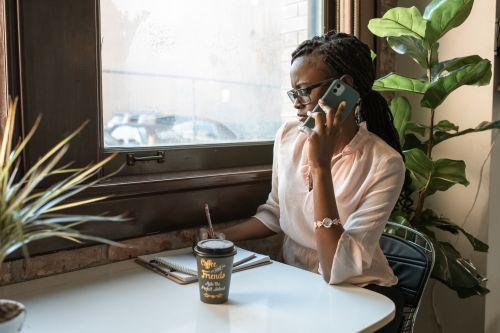Do you share ownership of a family home or property with others, but now wish to become the sole owner? Whether following a separation, an inheritance, or as part of a financial reorganization, a share buyout can be a practical solution to regain full control of your real estate asset.
This process involves acquiring the portion owned by one or more co-owners by providing financial compensation equivalent to their share. Once the transaction is complete, you become the sole holder of all rights to the property.
In what situations can a share buyout be considered?
A share buyout may occur in a variety of circumstances, not just following a separation. It’s a flexible solution that allows an individual to take full ownership of a shared property. Here are a few common examples:
After a separation or divorce: keeping the home by buying out your ex-partner
During a divorce, if one of the spouses wishes to remain in the family home, selling the property isn’t the only option. It is possible to buy out the other person’s share to become the sole owner.
Inheritance: becoming the sole owner of your parents’ home after their passing
When a property is inherited by several family members, one of them may decide to buy out the others’ shares, either to keep the family home or to simplify estate management.

Co-ownership between friends or partners: buying out a co-owner’s share
When friends or business partners purchase a property together, it’s not uncommon for one of them to decide to exit the arrangement after a few years. In such cases, the remaining co-owners may buy out the departing person’s share to retain full ownership of the property.
For this type of arrangement, it is essential to have a co-ownership agreement in place from the start. This document outlines each person’s ownership share, the rules for managing the property, and the exit conditions in case one party wants out. Having a clear framework helps avoid disputes and facilitates a smoother buyout process.
Reorganizing an estate: clarifying property ownership
In some situations, a share buyout may be done to clarify who owns what, rebalance financial contributions, or simplify an undivided ownership structure, even in the absence of conflict.
New couple: buying into your partner’s home
In a new relationship, one partner may move into a home already owned by the other. If both parties wish to become co-owners, the new partner can purchase a share of the property. This formalizes their contribution and creates a clear division of rights and responsibilities.
How to calculate the buyout amount for a property share
Before you can buy out another co-owner’s share, you must first determine the real value of that share. This ensures a fair compensation based on the current market value of the property.
1. Appraise the property’s market value
The first step is to determine the current market value of the home. For a reliable and impartial estimate, it is strongly recommended to hire a certified appraiser. This professional is recognized for providing neutral evaluations accepted by banks and notaries. Their report will form the basis for all subsequent calculations.
2. Calculate the property’s net equity
Once the property value is established, subtract any debts attached to it. This includes, for example, the remaining mortgage balance or penalties for early repayment. The result is the net equitythat is, what the property is truly worth after debts are paid. Here's the formula:
Property market value – outstanding debts = net equity
Net equity × ownership percentage = buyout amount
3. Determine the share to be bought out
Next, use the net equity to calculate the value of the departing owner’s share. If the property is co-owned equally, divide the net equity by two. If the shares are unequal, use the ownership percentages defined in a formal agreement or contract. Here’s a concrete example:
- The home is worth $450,000
- $150,000 remains on the mortgage. Net equity = $300,000
- The person leaving owns 40% of the property. 40% of $300,000 = $120,000
- You would need to pay $120,000 to become the sole owner of the property.

Why hire a certified appraiser?
Before buying out a share of a property, it is essential to know its actual market value. For an accurate and reliable estimate, it’s best to call on a certified appraiser.
This real estate professional provides an objective and fair market valuation based on current conditions. Their report is recognized by banks, notaries, and courts, making it a key document for:
-
Avoiding disputes between co-owners;
-
Negotiating a fair buyout price;
-
Securing a mortgage loan, if needed.
How does financing work in a share buyout?
In many cases, buying out a share requires a significant amount of money. If you don’t have the necessary funds, you will likely need to obtain a mortgage. This may take one of two forms:
-
A new mortgage loan in your name only, if you are buying out an ex-partner or exiting co-owner;
-
An increase to your existing mortgage, if your current loan conditions allow it.
However, before approving the financing, your financial institution will review several factors:
-
Your income, to confirm you can repay the loan;
-
Your existing debts, to calculate your debt ratio;
-
Your credit score, a strong file improves your chances of approval;
-
Your job stability, which reassures lenders.
What to do if the bank refuses your application
It’s possible that your bank may deny your financing request for a share buyout. This doesn’t mean your project is impossible, it simply means you’ll need to explore alternative options.
1. Ask a relative to act as guarantor
Someone close to you can act as a guarantor, meaning they commit to repaying the loan if you’re unable to. This can provide reassurance to the lender and increase your chances of approval.
Caution: Acting as a guarantor is a serious responsibility. Make sure the person fully understands the risks before agreeing.
2. Apply with another financial institution
Each lender has its own criteria. A rejection from one bank doesn’t mean all others will say no. Submitting a new application with another institution can be a worthwhile option.
3. Consider a private lender
As a last resort, you may consider working with a private lender. These lenders are typically more flexible but charge higher interest rates. This solution should be strictly temporary, used only while you improve your financial profile enough to refinance with a traditional lender.

Notary, mortgage, appraisal: what costs should you expect in a share buyout?
A share buyout comes with several costs that must be anticipated to avoid unpleasant surprises. In addition to the amount paid to the exiting co-owner, you’ll be responsible for various transaction-related expenses and for the full financial responsibility of being the sole owner. Here are the main costs to expect:
-
Notary fees: to formalize the transfer of ownership and update the land title;
-
Appraisal fees: if you hired a certified appraiser to determine the market value of the property;
-
Mortgage break fees: if you need to end your current mortgage before its term;
-
Bank fees: related to setting up or modifying a mortgage loan;
-
Ongoing expenses: including property taxes (municipal and school), insurance, maintenance, and repairs, which you will now cover on your own.
Good to know: If the buyout is completed within 12 months following a separation or divorce, you may be exempt from paying the land transfer tax (commonly known as the welcome tax), which is normally due when ownership changes hands.
What if the co-owners can’t reach an agreement?
In some cases, co-owners cannot agree on the terms of the buyout. This may involve a disagreement about the property’s value, the ownership share, or the proposed compensation. Fortunately, there are legal options available to help resolve such disputes.
1. Mediation: an amicable solution
Involving a neutral mediator can help restore communication. This professional assists both parties in reaching a fair agreement without going to court. Mediation is often quicker and less expensive than legal action.
2. Court application: a last resort
If mediation fails, you may file a partition application before a judge to terminate undivided co-ownership. The court can then:
-
Set the buyout terms (amount, deadlines, conditions);
-
Order the sale of the property if no buyout is possible;
-
Establish a sale price and deadlines, if necessary.
While this process can be longer and more complex, it offers a clear path forward when no amicable solution can be found.
Do you want to have your home appraised for a buyout?
XpertSource.com can help you find a certified appraiser. When you tell us about your project, we put you in touch with qualified resources for FREE. Simply fill out our form ( it only takes a few minutes ) and we will connect you with professionals.

